WRITERS AND POETS
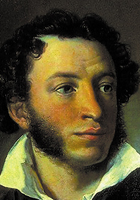 Alexander Pushkin (1799-1837) was born in Moscow on May 26, 1799. From 1811 to 1817 he attended the Lyceum, tsarist Russia’s most famous school for the nobility, 24 kilometers from St. Petersburg in Tsarskoe Selo. Among the friends he made here were some of those who later took part in the Decembrists’ uprising. In 1820 he was forced to leave St. Petersburg on account of his many political and satirical poems, remaining in exile until 1826. After that he lived mostly in Moscow and St. Petersburg, his work being subject to the personal censorship of the tsar. He was only allowed to publish his writing after a certain period of time.
Alexander Pushkin (1799-1837) was born in Moscow on May 26, 1799. From 1811 to 1817 he attended the Lyceum, tsarist Russia’s most famous school for the nobility, 24 kilometers from St. Petersburg in Tsarskoe Selo. Among the friends he made here were some of those who later took part in the Decembrists’ uprising. In 1820 he was forced to leave St. Petersburg on account of his many political and satirical poems, remaining in exile until 1826. After that he lived mostly in Moscow and St. Petersburg, his work being subject to the personal censorship of the tsar. He was only allowed to publish his writing after a certain period of time.
Pushkin and his wife Natalya Goncharova, whom he married in 1831, later became regulars of court society. In 1837, amidst rumors that his wife had started conducting a scandalous affair, Pushkin challenged her alleged lover, Georges d'Anthes, to a duel. Pushkin was mortally wounded and died two days later.
Pushkin Apartment Museum
The last apartment of Alexander Pushkin, where Russia's great poet died on January 29, 1837, being mortally wounded in a duel. Personal effects of Pushkin and his family are displayed.
Moyki r. nab., 12
Tel: 571-35-31
Ticket office: Mo, We-Su 10:30-17; closed last Fr of the month; M. Nevskiy Prospekt
There, by the billows desolate,
He stood, with mighty thoughts elate,
And gazed; but in the distance only
A sorry skiff on the broad spate
Of Neva drifted seaward, lonely.
The moss-grown miry banks with rare
Hovels were dotted here and there
Where wretched Finns for shelter crowded;
The murmuring woodlands had no share
Of sunshine, all in mist beshrouded.
And thus He mused: “From here, indeed
Shall we strike terror in the Swede;
And here a city by our labor
Founded, shall gall our haughty neighbor;
’Here cut’ – so Nature gives command –
’Your window through on Europe; stand
Firm-footed by the sea, unchanging!’
Ay, ships of every flag shall come
By waters they had never swum,
And we shall revel, freely ranging”.
A century – and that city young,
Gem of the Northern world, amazing,
From gloomy wood and swamp upsprung,
Had risen, in pride and splendor blazing.
Where once, by that low-lying shore,
In waters never known before
The Finnish fisherman, sole creature,
And left forlorn by stepdame Nature,
Cast ragged nets – today, along
Those shores, astir with life and motion,
Vast shapely palaces in throng
And towers are seen: from every ocean,
From the world’s end, the ships come fast,
To reach the loaded quays at last.
The Neva now is clad in granite
With many a bridge to overspan it;
The islands lie beneath a screen
Of gardens deep in dusky green.
To that young capital is drooping
The crest of Moscow on the ground,
A dowager in purple, stooping
Before an Empress newly crowned.
……………………………………
Now, city of Peter, stand thou fast,
Foursquare, like Russia; vaunt thy splendor!
The very element shall surrender
And make her peace with thee at last.
Their ancient bondage and their rancors
The Finnish waves shall bury deep
Nor vex with idle spite that cankers
Our Peter’s everlasting sleep!
Alexander Pushkin , The Bronze Horseman,
Trans. by Waclaw Lednicki
Pub. Berkeley, CA: University of California Press, 1955
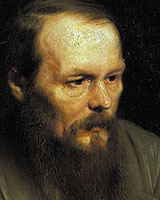 Fyodor Dostoevsky (1821-1881) was a Russian novelist whose profound philosophical and psychological insights anticipated important developments in 20th century thought.
Fyodor Dostoevsky (1821-1881) was a Russian novelist whose profound philosophical and psychological insights anticipated important developments in 20th century thought.
Dostoevsky grew up in a middle-class family in Moscow. In 1837 he was sent to St. Petersburg, where he entered the Military Engineering College. Dostoevsky graduated as a military engineer, but resigned in 1844 to devote himself to writing. His first novel, Poor Folk appeared in 1846. In 1848 Dostoevsky joined a group of young intellectuals, led by Mikhail Petrashevsky, which met to discuss literary and political issues. He was arrested in 1849 and sentenced to death. In the last moment the sentence was commuted to hard labor in Siberia. While in prison the writer underwent a profound spiritual and philosophical transformation.
When Dostoevsky was finally allowed to return to St. Petersburg in 1859, he eagerly resumed his literary career, founding two periodicals and writings articles and short fiction. The articles expressed his new belief in a social and political order based on the spiritual values of the Russian people. These years were marked by further personal and professional misfortunes, including the forced closing of his journals by the authorities, the deaths of his wife and his brother. It was in this atmosphere that Dostoevsky wrote Notes from the Underground. It was followed by Crime and Punishment, (1866), The Idiot, (1868), and The Possessed (1871).
In 1867 Dostoevsky married Anna Snitkina, a 22-year old stenographer. They traveled abroad and returned in 1871. By the time of The Brothers Karamazov, which appeared in 1879-1880, Dostoevsky was recognized in Russia as one of its great writers.
Dostoevsky died in St. Petersburg on February 9, 1881. He was buried in the Alexander Nevskiy Monastery in St. Petersburg.
Dostoevsky Literary Memorial Museum
Home of Fyodor Dostoevsky from October 1878 until the day of his death. Visitors can get familiar with Dostoevsky's life and creative activity, visit exhibitions of contemporary art, see performances based on Dostoevsky's novels.
Kuznechnyy per., 5/2
Tel: 571-40-31
Ticket office: 764-69-50
Ticket office: Tu-Su 11-17:15; M. Dostoevskaya
It was only this morning that at last I discovered the real cause of my unhappiness. Oh, so they are all running away from me to the country, are they? I’m afraid I must apologize for the use of this rather homely word, but I’m not in the mood now for the more exquisite refinements of style, for everybody in St. Petersburg has either left or is about to leave for the country; for every worthy gentleman of a solidly-prosperous and dignified position who hails a cab in the street is at once transformed in my mind into a worthy parent of a family who, after his usual office duties, immediately leaves town and, unencumbered by luggage, hastens to the bosom of his family – to the country; for every passer-by now wears quite a different look, a look which almost seems to say to every person he meets, “As a matter of fact, sir, I’m here by sheer chance, just passing through, you understand, and in a few hours I shall be on the way to the country”. If a window is thrown open and a most ravishing young girl, who a moment ago had been drumming on it with her lovely white fingers, pokes out her pretty head and calls to the man selling pots of plants in the street, I immediately jump to the conclusion that the flowers are bought not for the purpose of enjoying the spring and the flowers in a stuffy old flat in town, for very soon everybody will anyway be leaving for the country and will take even the flowers with them. Why, I’ve got so far in my new discovery (quite a unique discovery, you must admit) that I can tell at once, just by looking at a man, in what sort of a cottage he lives in the country. The residents of the Stone and Apothecary Islands can be recognized by their studied exquisiteness of manners, their smart summer clothes, and their wonderful carriages in which they come to town. The inhabitants of Pargolov and places beyond “inspire” your confidence at the first glance by their solidly prosperous position and their general air of sobriety and common sense; while the householder of Krestovskiy Island is distinguished by his imperturbably cheerful look. Whether I happen to come across a long procession of carters, each walking leisurely, reins in hand, beside his cart, laden with whole mountains of furniture of every description – tables, chairs, Turkish and non-Turkish divans, and other household chattels – and, moreover, often presided over by a frail-looking cook who, perched on the very top of the cart, guards the property of her master as though it were the apple of her eye; or whether I look at the barges, heavily laden with all sorts of domestic junk, sailing on the Neva or the Fontanka, as far as the Black River on the Islands – both carts and barges multiply tenfold, nay, a hundredfold in my eyes. It really seems as though everything had arisen and set off on a journey, as though everything were moving off in caravan after caravan in the country; it seems as though the whole of Petersburg were about to run into a desert, and it is hardly surprising that in the end I am overwhelmed with shame, humiliation and sadness.
Dostoevsky, White Nights,
From The Best Short Stories of Dostoevsky,
Trans. by David Magarshack,
Pub. The Modern Library, New York, 1955
 Alexander Blok
Alexander Blok (1880-1921) was born in St. Petersburg on November 28, 1880, into a sophisticated and intellectual family. His maternal grandfather was the rector of St. Petersburg University. Blok grew up in an upper-class intellectual atmosphere. Summers were spent at Shakhmatovo, the grandfather’s country home near Moscow. There the famous chemist Dmitriy Mendeleev was a neighbor, and in 1903 Blok married Mendeleev’s daughter.
Blok’s first book, the strongly symbolistic
Verses about the Beautiful Lady, appeared in 1904. By 1906, when he graduated from the philological faculty of St. Petersburg University, Blok was a recognized poet.
In 1907-1908 Blok was a reviewer for the magazine
Golden Fleece. His articles combined evaluations of contemporary literature with a longing for the Russian past and for a vital connection between the intelligentsia and the people. In
Russia and
On Kulikovo Field (both 1908), he searched for a way to bring national history to bear on the present. Despite his feelings of personal failure, from 1909 to 1916 Blok wrote poetry of high artistic achievement.
Blok supported the 1917 revolution. His poem
The Twelve (1918), a combined lyric and narrative about 12 red guardsmen on city patrol, synthesizes Christian values and reformist principles. It brought Blok even wider popularity and enduring fame.
By 1921 Blok became disillusioned with the Russian revolution. Hard times, political bitterness, and his own confused life made him old at 40. Blok died in Petrograd on August 7, 1921.
Blok Memorial Apartment Museum
Former home of great Russian poet Alexander Blok. Museum opened in 1980. Original interiors, personal effects, documents; conferences, lectures, excursions.
Dekabristov ul., 57
Tel: 713-86-31
Ticket office: Mo, Th-Su 11-17, Tu 11-16; closed last Tu of the month; M. Sennaya Ploshchad
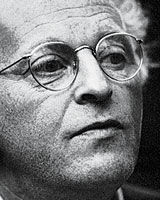 Joseph Brodsky (1940-1996) was born in 1940 in Leningrad, and began writing poetry and producing literary translations when he was eighteen. The young Brodsky was encouraged and influenced by the poet Anna Akhmatova who called some of his verses “enchanting”.
Joseph Brodsky (1940-1996) was born in 1940 in Leningrad, and began writing poetry and producing literary translations when he was eighteen. The young Brodsky was encouraged and influenced by the poet Anna Akhmatova who called some of his verses “enchanting”.
As a young men Brodskiy was already in conflict with the Soviet authorities, and was sent to prison camp in 1964 for “social parasitism”; he was pardoned in 1965, then exiled in 1972.
Since then Joseph Brodsky lived in the United States. He has been poet-in-residence and visiting professor at the University of Michigan, Queens College, Smith College, Columbia University, and Cambridge University in England. In 1978, Brodsky was awarded an honorary degree of Doctor of Letters at Yale University, and on May 23, 1979, he was inducted as a member of the American Academy and Institute of Arts and Letters. In 1987, he won the Nobel Prize for Literature. The Library of Congress appointed him poet laureate in 1991.
Brodsky died of a heart attack in his New York City apartment on January 28, 1996, and was buried at Isola di San Michele cemetery in Venice, Italy.
Brodskiy Memorial Apartment Museum
Contains about 800 works of art by 19th-early 20th century masters.
Iskusstv pl., 3
Tel: 314-36-58
Ticket office: We-Su 12-18; M. Gostinyy Dvor
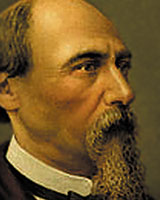 Nikolay Nekrasov (1821-1878) was born in Nemirov, Yaroslav province, Russia. Thanks to his mother’s love and support, young Nekrasov managed to survive through the traumatic experiences of his childhood and youth.
Nikolay Nekrasov (1821-1878) was born in Nemirov, Yaroslav province, Russia. Thanks to his mother’s love and support, young Nekrasov managed to survive through the traumatic experiences of his childhood and youth.
His first book of poetry was met with criticism from Belinskiy. Nekrasov was devastated and removed all the copies of his failed book from booksellers. He joined the staff of Notes of the Fatherland, where his former critic Belinskiy was the principal literary expert. They soon became friends and Nekrasov was promoted to an editing position. In 1846 Nekrasov acquired the Contemporary magazine. From 1846-1866 he was the publisher of Contemporary and made it one the most reputable magazines of the 19th century Russia. In it Nekrasov published his own novels and poems, as well as the works of Russian writers. After 1866 Nekrasov became an independent writer and entered the most productive period in his life.
Nekrasov’s best poems, such as Russian Women (1871-72), Who’s Happy in Russia (1873-76), and Last Songs (1877), stand out among the 19th century Russian poetry.
Nekrasov Memorial Apartment Museum
The museum exposition tells about life and creative work of Nekrasov and his contemporaries. Displays Nekrasov's and Panaev's personal effects and interior.
Liteynyy pr., 36
Tel: 272-01-65
Ticket office: Mo, We-Su 11-17; closed last Fr of the month; M. Chernyshevskaya
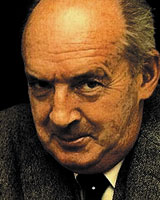 Vladimir Nabokov (1899-1977) was born in St. Petersburg into an aristocratic family. His father, Vladimir Dmitrievich Nabokov, was a famous liberal politician. The family spoke Russian, English and French in their household, and Nabokov was trilingual from an early age. He received his education at the Tenishev school in St. Petersburg. During the 1917 Revolution the Nabokov family first fled to the Crimea, and then emigrated to Berlin. Vladimir Nabokov entered Trinity College, Cambridge, from where he graduated in 1923.
Vladimir Nabokov (1899-1977) was born in St. Petersburg into an aristocratic family. His father, Vladimir Dmitrievich Nabokov, was a famous liberal politician. The family spoke Russian, English and French in their household, and Nabokov was trilingual from an early age. He received his education at the Tenishev school in St. Petersburg. During the 1917 Revolution the Nabokov family first fled to the Crimea, and then emigrated to Berlin. Vladimir Nabokov entered Trinity College, Cambridge, from where he graduated in 1923.
In Berlin Nabokov earned for living teaching languages. He also began writing under the name V. Sirin, selling stories, poems, and essays to Russian-language newspapers. His works included translating different stories and poems into Russian and writing short stories, plays, novels, and criticism. In 1925 he married Vera Slonim, and they had son Dmitriy.
In 1940 the Nabokov family fled from the advancing Nazi troops to the United States. From 1941 to 1948 Nabokov taught at Wellesley College in Massachusetts, where he became a professor of literature. He became an American citizen in 1945. By then his stories were appearing regularly in popular magazines. In 1949 Nabokov was appointed professor of Russian and European literature at Cornell University in New York, where he taught until 1958.
Nabokov remained unknown to the general public until writing his novel Lolita, that was first published in Paris in 1955. Nabokov also wrote the screenplay for the movie version of the book. With profits from the novel and the film, Nabokov was able to quit teaching and devote himself entirely to writing.
In 1961 Nabokov moved with his family to Montreux, Switzerland and stayed there until the end of his life. He died on July 2, 1977 at the Palace Hotel in Montreux.
Nabokov Museum
Memorial rooms with exhibits devoted to Nabokov's life and creative activity
Bolshaya Morskaya ul., 47
Tel: 315-47-13
Ticket office: Tu-Fr 11-17:30, Sa-Su 12-16:30; M. Nevskiy Prospekt
When museums and movie houses failed us and the night was young, we were reduced to exploring the wilderness of the world’s most gaunt and enigmatic city. Solitary street lamps were metamorphosed into sea creatures with prismatic spines by the icy moisture on our eyelashes. As we crossed the vast squares, various architectural phantoms arose with silent suddenness right before us. We felt a cold thrill, generally associated not with height but with depth – with an abyss opening at one’s feet – when great, monolithic pillars of polished granite (polished by slaves, repolished by the moon, and rotating smoothly in the polished vacuum of the night) zoomed above us to support the mysterious rotundities of St. Isaac’s Cathedral. We stopped on the brink, as it were, of these perilous motifs of stone and metal, and with linked hands, in Lilliputian awe, craned our heads to watch new colossal visions rise in our way – the ten glossy-gray atlantes on a palace portico, or a giant vase of porphyry near the iron gate of a garden, or that enormous column with a black angel on its summit that obsessed, rather than adorned, the moon-flooded Palace Square, and went up and up, trying in vain to reach the subbase of Pushkin’s “Exegi monumentum”.
Vladimir Nabokov,
Speak, Memory:
An Autobiography Revisited,
Weidenfeld and Nicolson, London 1960
